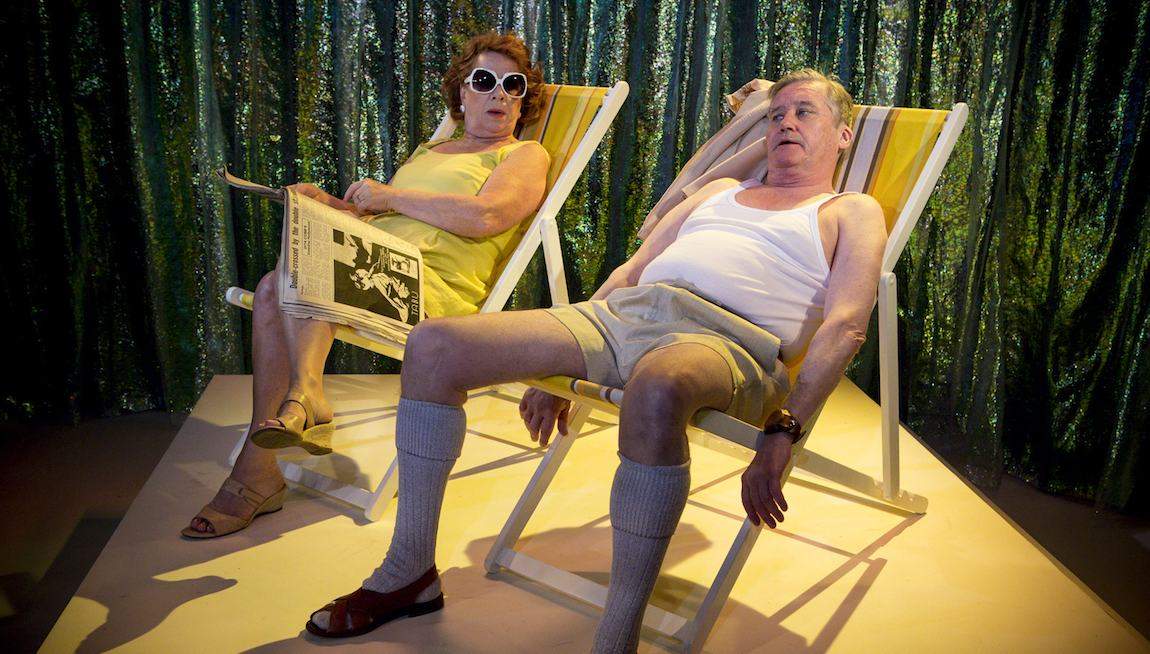The Floating World – Griffin Theatre
An affecting depiction of the long-lasting effects of war unfolds on a cruise ship.
Overview
When you think Australian culture of the 1970s, you probably get a stodgy, insular, Chiko-rolls-and-panel-vans kind of picture. But somewhere in Melbourne, a young John Romeril was kicking around La Mama, building a performing arts collective in a converted pram factory and writing The Floating World. His most well-known play, it features a war vet, a cruise ship, a Malay waiter, an in-your-face comedian and an unstable reality that lurches with the throes of its main character's mind.
Les Harding (Peter Kowitz) is on the 1974 Women's Weekly Cherry Blossom cruise to Japan with his wife, Irene (Valerie Bader). They're meant to spend their days in sun loungers and nights in the bar with their dapper new friend, Robinson (Tony Llewellyn-Jones), and the hired entertainment (Justin Smith as emcee and Justin Stewart Cotta as one-man band). And they do do some of that.
But the closer they get to their destination, the stranger Les starts to behave, ruining these idyllic moments as memories long buried are stirred to the surface. As a young private, Les fought in Japan with the Australian Imperial Force, and the traumas he experienced there have managed to go unexamined for nearly a lifetime.
The most startling achievement of The Floating World is its vivid, violent, sometimes comic and usually unsettling portrayal of Post-Traumatic Stress Disorder, written at a time when PTSD was not yet known and defined (it was among the goals of the anti-Vietnam War demonstrators at about the same time to get the condition recognised and treated). In The Floating World, you experience reality in the same malleable, untrustworthy way Les does, and it's heartbreaking.
The breakneck, bewildering comedy in the writing is also a treat to discover in this, the only 'classic' Australian play in Griffin Theatre's otherwise all-new-writing season. Director Sam Strong has done great justice to the work, crafting smooth transitions and interjections as well as a layer of uneasy hyperreality that ties it all together.
If you have a parent or grandparent who fought in one of Australia's wars, this play will strike the heart, paving a bridge that crosses what years of pain and stoicism may have made distant. If you don't, it might be a bit harder to connect with the play. Les is a disagreeable old sort, and Kowitz plays with him with such gruff perfection that his yammering can be realistically hard to listen to.
There's too much full-tilt Australiana in here for it to be a play that communicates beyond the limited bounds it's set in. But as a voyage into the Australian wartime legacy, The Floating World is highly effective.





